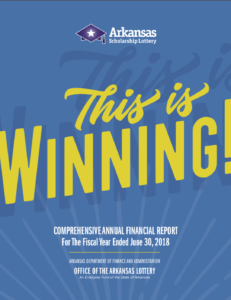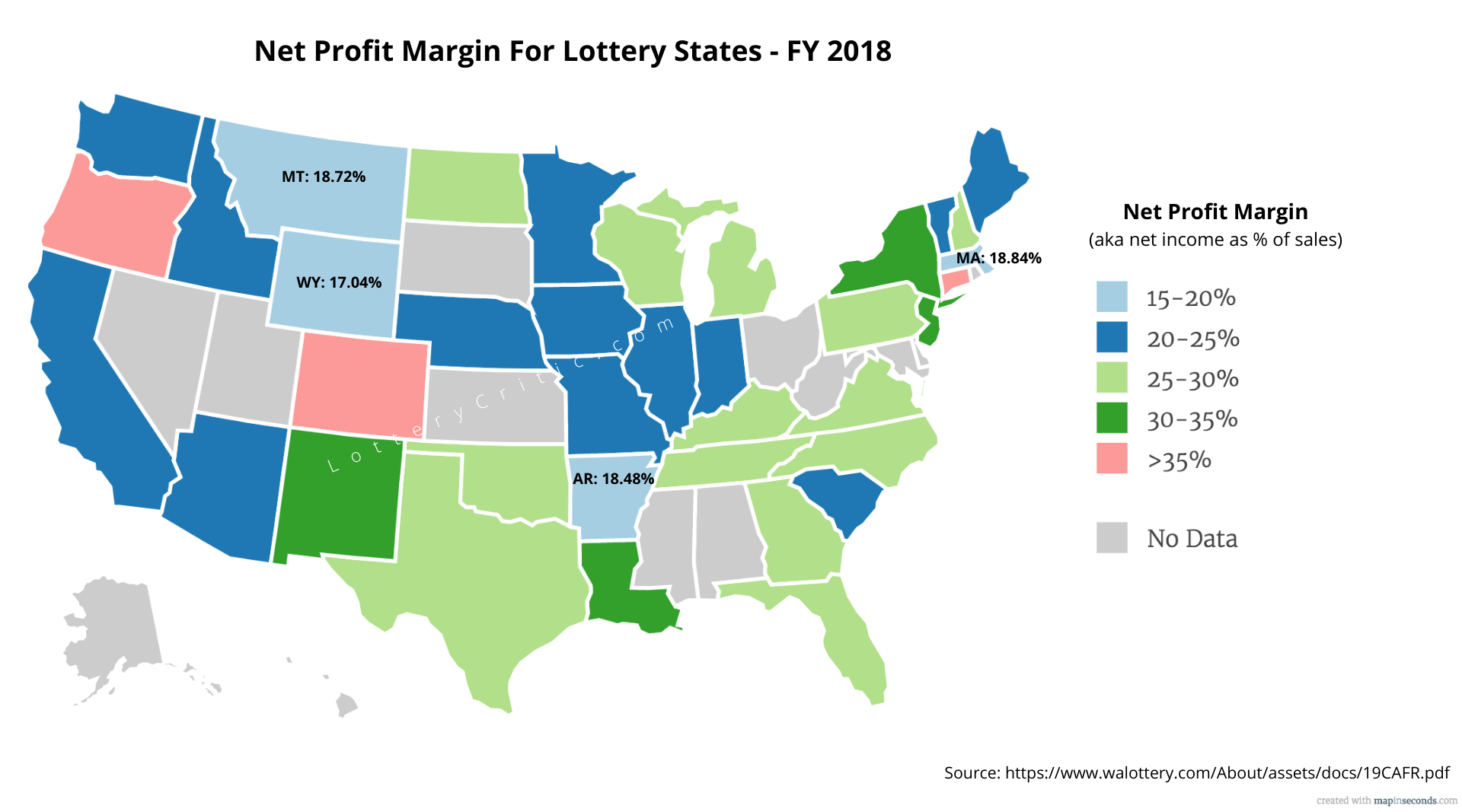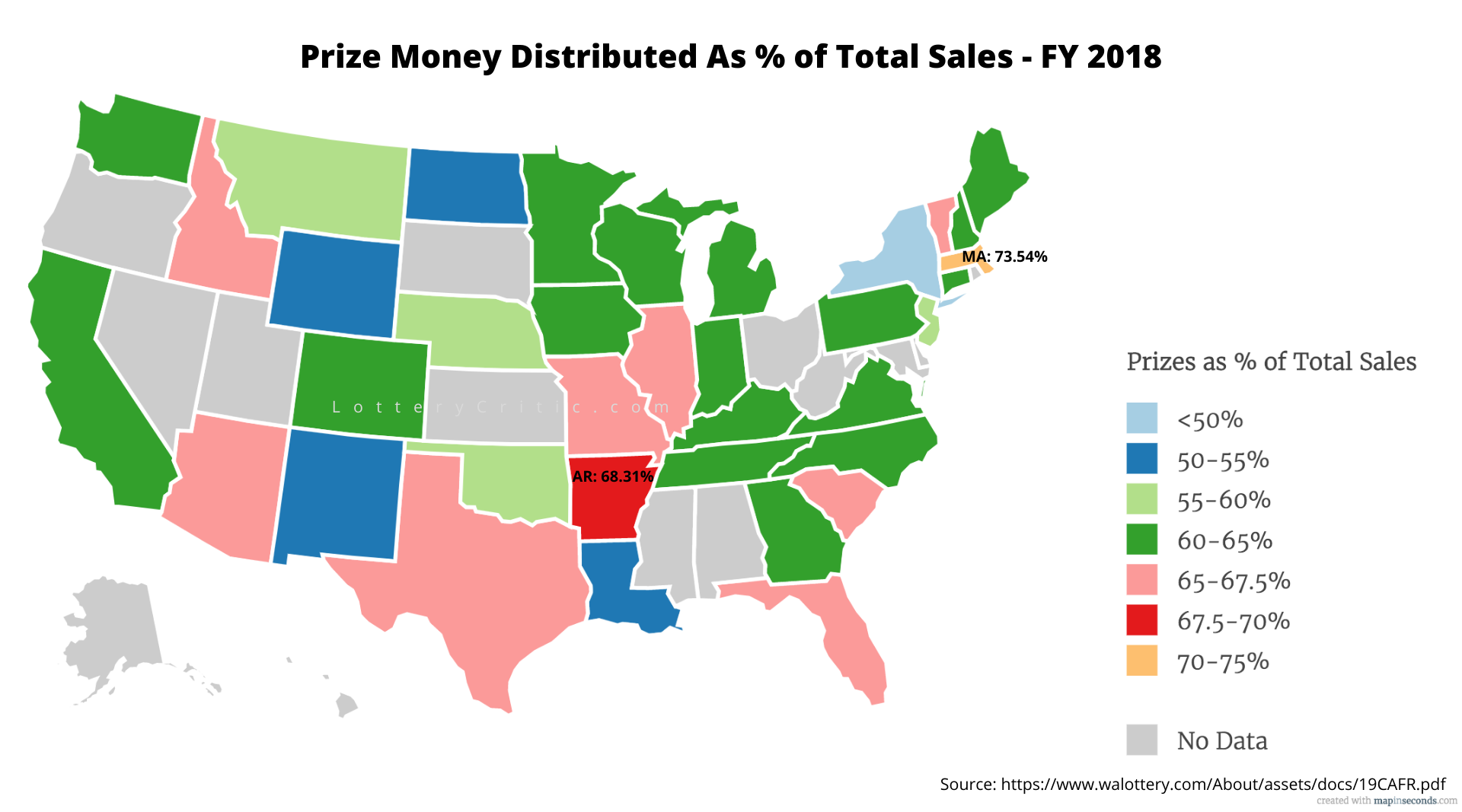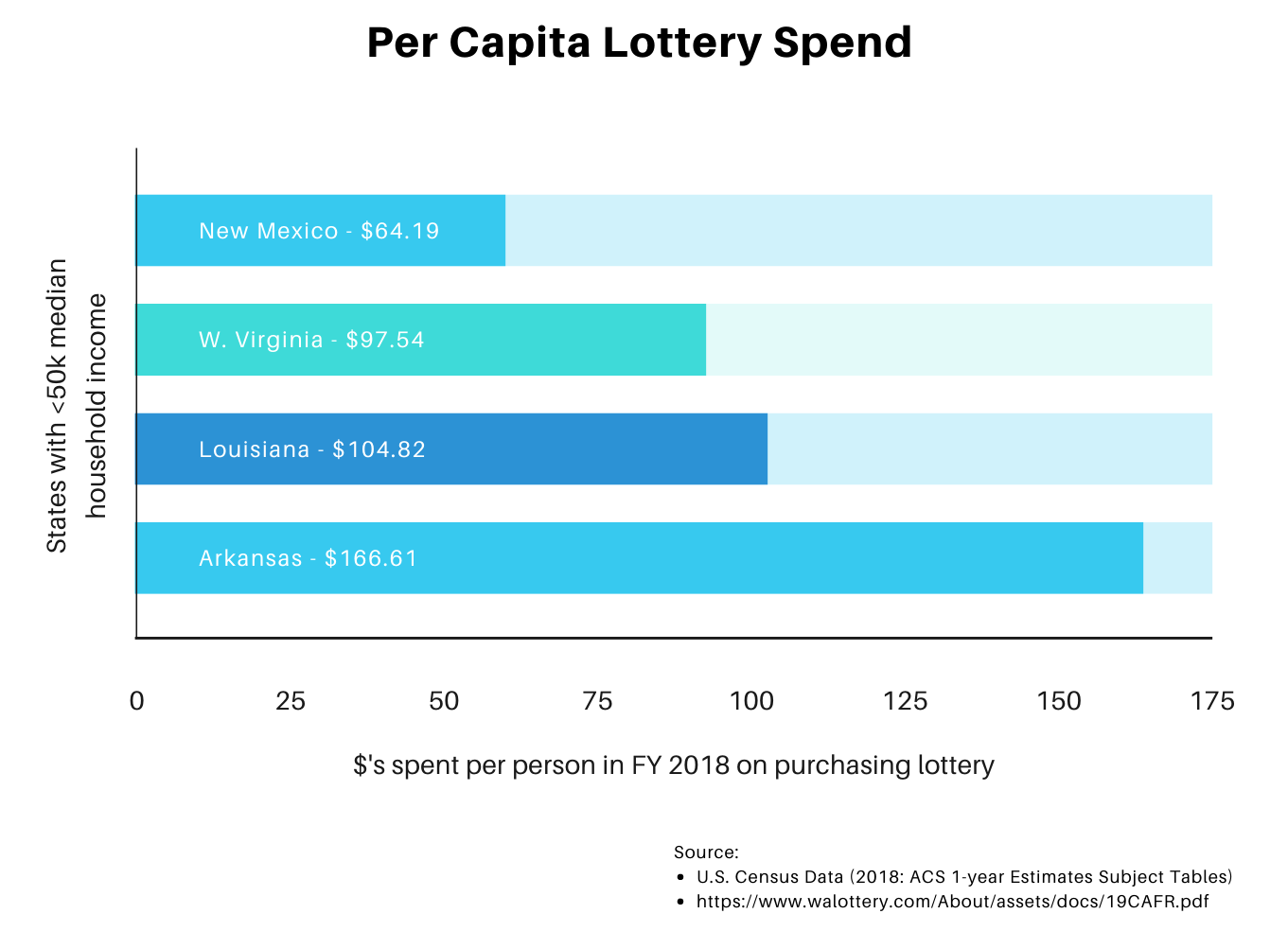Is Arkansas Winning? Maybe, At The Expense Of 180,000 Students
“This is Winning!”
These words, in large fonts and bright yellow, are hard to miss as you start reading the 114-page long FY2018 financial report published by the Arkansas Scholarship Lottery. In the pages that follow, there are numerous full-page images of happy students receiving their scholarships and ecstatic lottery winners.
And why not? In FY 2018 alone, the state lottery funded $91.9M in scholarships enabling 33,025 students to attend a state college, potentially helping them realize their dreams.

“The promise of the lottery is that of a higher education for all citizens of our state.” writes Mr. Larry W. Walther, Director Office of Arkansas Lottery (OAL). “That goal can only be met through open, honest, and ethical operations and through meeting the high expectations of the General Assembly and the people of Arkansas.”
On the surface the numbers are impressive and it looks like the OAL (Office of Arkansas Lottery) is achieving its primary objective of enabling higher education for its residents. But once you take a closer look, the numbers tell an entirely different story.
The Numbers They Want You To Focus On
First, a quick history lesson: on November 4th, 2008 62.83% of voters in Arkansas voted in favor of ‘The Arkansas State Lottery Amendment’, also known as ‘Proposed Amendment 3’, paving the way for Bill Halter, the Lieutenant Governor at the time, to create the state lottery to help fund college scholarships and grants.
Since it's inception, the OAL (Office of Arkansas Lottery) has sold lottery worth almost $4B and distributed $781M in the form of scholarships. OAL's last fiscal year that ended on June 30th, 2018 was it's highest-grossing year ever, generating over $0.5B in lottery sales out of which $91.9M was distributed for scholarships.
These are impressive numbers. And these are the only numbers OAL wants you to focus on. But, these numbers don't paint the whole picture.
The One Number That Matters The Most
To truly understand the effectiveness of the OAL you need to look at the amount distributed to scholarships as a % of total sales. In business, this number is generally referred to as ‘Net Profit Margin' which put simply, is equal to ‘Net Income / Total Sales'.
From OAL's FY 2018 financial report:
- Net Income: $92.48M (which is the net operating income, a bulk of which is distributed for scholarships)
- Total Sales: $500.49M (which is the total revenue generated from sales of both draw and scratch-off games)
- So, Net Profit Margin = $92.48M / $500.49M = 0.1848 or 18.48% (which is bulk of the amount OAL distributed for scholarships)
For context, the average net profit margin for all lottery states – aka the amount they give back to their community – was 32.36% in FY2018 . Using that as a benchmark, Arkansas returned about 43% less back to the community than other lottery playing states.
And that's where the problem lies – Arkansas has one of the lowest Net Profit Margin out of all the lottery playing states.

And it's not just 2018 where OAL has had such low profit margins. This has been the case since the inception of the lottery!
So on average, since it's inception, the OAL has distributed 19.53% of total sales for the scholarships.
Now here's the kicker – If their net profit margin was in line with the other lottery states i.e. 32.36%, the amount distributed for scholarships would have been $1.29B versus the $781M distributed thus far.
That's a shortfall of $509M!
Sorry OAL, but we don't think this is winning 🙁
So, Where's The Money Going?
Are the OAL executives making too much? Is OAL awarding large contracts and spending extravagantly?
No, it doesn't seem so. While the expenses are slightly higher than the average, the difference is not meaningful enough to justify the low-profit margins. Looking at expenses as a % of total sales for FY 2018, Arkansas's was at 7.83% compared to 6.68% average for all lottery states.
Then what is it?
Looking at the operating expenses you realize that Arkansas has a disproportionately high number of dollars being returned back to the lottery winners. Not Mega Millions or Powerball jackpot winners, but winners of the 50+ scratch-off games that the state heavily promotes. In FY2018 alone, Arkansas gave away 68.31% of total sales revenue as prizes, a total of $341.9M out of which $292.5M (86%) was prizes for scratch-off / instant games and $49.4M (14%) was in prizes for draw games.
When you compare this number to all the other lottery states, you realize that Arkansas is 2nd highest in terms of prizes awarded as % of lottery sales. No wonder OAL promotes ‘This Is Winning!' slogan and hashtags!

How This Really Hurts Arkansas
Maybe rewarding higher prizes back to lottery players makes it a ‘winning' state. But in reality, it hurts more than it helps for these reasons.
-
-
- It reduces the amount being distributed for scholarships – the primary objective of the lottery. We have explained this above in detail but to reiterate the main point – Arkansas students would have had $500M more in scholarships if the OAL's profit margins were in line with the rest of the lottery states. That's 180,000 additional students receiving scholarships!
- It furthers the false belief that the lottery is a way to get rich quickly. A large number of lottery winners, coupled with aggressive advertisements promoting winner stories (the financial statement of OAL probably has more marketing content than even publicly listed companies), fuels a cycle where people end up buying more lottery, falsely believing that it's their ticket to financial freedom. Just look at this data point – out of the 4 U.S. lottery states with median household income < $50,000, Arkansas spends the highest amount per person on buying lotteries. About 2.5 times more than people in New Mexico.
-
It takes a toll on the poor as they're the ones buying more lottery. There have been numerous studies on how the lottery is a regressive tax on the poor so we won't belabor that point but we want to provide a couple of data points as it relates to Arkansas.
Dollars spent per person buying the lottery in the richest and poorest counties in Arkansas for FY 2018
- $66.85 – total lottery sales/person in Benton, the county with the highest median income of $61,271
- $175.40 – total lottery sales/person in Phillips, the county with the least median income of $26,652
And,
% of household income spent by richest and poorest counties in Arkansas in FY 2018 on lottery
- 0.36% of household income spent buying the lottery in counties with > $39k average household income of Arkansas (e.g. Lonoke, Faulkner, Saline, Washington, etc.)
- 0.54% of household income spent buying the lottery in counties with < 39k average household income of Arkansas (e.g. Hempstead, Jefferson, Clark, Ouachita, etc.)
-
What Can You Do To Fix This, Arkansas?
Shouldn't the mission of the Arkansas Scholarship Lottery be to maximize the number of scholarships they can provide to the students of the state? If so, there's a lot of room for improvement. An extra $500M would have funded an additional 180,000 scholarships in the past 9 years! That's a whole lot of students whose life the lottery would have impacted in a positive way.
Further, why have a disproportionately large amount of money go to people playing the lottery instead of the students? Isn't it better to create a society where kids can rely on education to bolster their chances of success in life versus one where they cannot afford to get college education due to lack of scholarship and then are stuck having to rely on the lottery as their ticket to get rich, for rest of their lives? It creates a vicious cycle, one that's hard to break out of.
As a citizen of Arkansas if this situation bothers you, then please reach out to OAL via mail, email or phone and ask them to rectify the situation. Do it today!
Or you can reach out to local newspapers and share this article. Have their experienced journalists investigate the issue further. Hold them accountable to get answers from OAL.
We at LotteryCritic obviously love lotteries and think they can be fun while providing means to fund critical initiatives, whether that's education or otherwise. But, we also want to see the money generated by the lottery get used well and towards the primary objective. And in the case of Arkansas Scholarship Lottery, we believe a lot more work needs be done by the OAL.
Do something Arkansas. #thisisnotwinning
If you need additional information please reach out to us or post your question in the comments section below.
And if you liked our work, please do us a HUGE FAVOR and appreciate it by liking us on Facebook and recommending us to your friends.

